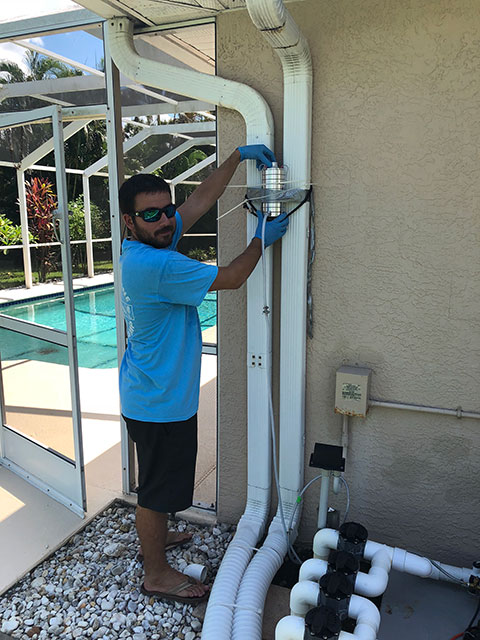Florida Gulf Coast University was awarded federal event-response funds to help identify whether local algae blooms are producing airborne toxins or particles.
For several months, intensive microcystis blooms — commonly referred to as blue-green algae — have plagued communities along the tidal Caloosahatchee River and adjoining canals around Cape Coral. The Florida Department of Environmental Protection has been conducting monthly sampling in the area and reported on the presence of microcystis aeruginosa and microcystin concentrations in recreational waters, some at levels considered to be “high risk” for acute health effects by the World Health Organization.

With microcystins present in coastal waters, residents have expressed concerns about health risks from exposure via inhalation of “algal dust.” However, there is no conclusive scientific evidence to date of an airborne vector for microcystin exposure.
To address this question, a research team led by FGCU marine science professor Mike Parsons developed a pilot air-sampling program and began collecting air sample filters from a site along the tidal Caloosahatchee river next to an ongoing microcystis bloom and also from a control site without a bloom. Air samplers were run Sept. 21-Oct. 11, and water samples were collected before and after deployments at each site.
The goal of the program is to determine whether toxin and cell particles are present and also to identify particle sizes. As particle sizes decrease they can be more deeply inhaled into the lungs allowing any associated toxins or other bioactive compounds to more easily enter the bloodstream.
The National Centers for Coastal Ocean Science, part of the National Oceanic and Atmospheric Administration, provided $5,000 to cover costs to analyze air sample filters and water samples to determine the presence or absence microcystis using DNA sequencing.
In addition to FGCU, the project involves Yale University researchers and the Cape Coral Environmental Resource Division. The potential expansion of the pilot monitoring program and linkages with other human health research groups will be discussed after test results are shared with local and state agencies.